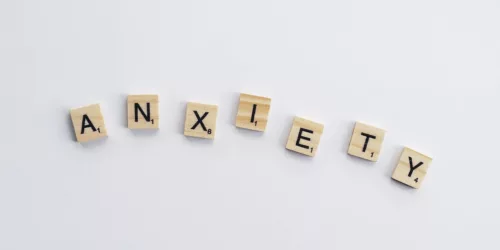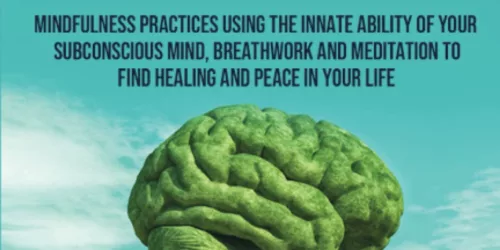Navigating Emotional Triggers: A Guide for Empaths

Understanding Triggers for Empaths
Empaths are individuals highly attuned to the emotions and energy of those around them. They often absorb feelings from their environment, which can lead to emotional overload and stress. In this article, we’ll explore the unique challenges empaths face with emotional triggers and offer strategies for managing them effectively.
Why This Article is Crucial
If you identify as an empath, understanding and managing emotional triggers is vital for your mental and emotional well-being. This guide will provide you with insights and practical tips to help you navigate these challenges with confidence and resilience.
1. What Happens When an Empath Encounters a Trigger?
When an empath encounters a trigger, they may experience a flood of emotions, often absorbing the feelings of those around them. This can lead to feelings of overwhelm and confusion, as it becomes difficult to distinguish between one’s own emotions and those of others.
The Impact on Mental and Emotional Health
For empaths, encountering a trigger isn’t just an emotional response; it can also manifest in physical symptoms like fatigue or headaches. These experiences can be draining and lead to a need for time alone to recharge.
Recognizing Your Triggers
Self-awareness is key. Empaths must learn to recognize their triggers and understand their responses to them. This awareness is the first step in managing emotional overload effectively.
2. Common Emotional Triggers for Empaths
Empaths are particularly sensitive to certain triggers. These can include conflict, negative emotions from others, and even sensory overload. Identifying these common triggers is crucial for managing your emotional energy.
Emotional Pain in Others
Empaths are highly sensitive to the pain and suffering of others. Witnessing or sensing this pain can be a significant trigger, leading to a deep empathetic response.
Sensitivity to Environments
Crowded or noisy environments can also be triggers. The sheer volume of sensory input can be overwhelming, leading to feelings of anxiety or stress.
3. The Link Between Empaths and Narcissists
Empaths and narcissists often have a complex and challenging relationship. The empath’s deep capacity for understanding and compassion can attract narcissists, who may take advantage of this sensitivity.
Understanding this dynamic is crucial for empaths. Recognizing the signs of a narcissistic relationship can help empaths set necessary boundaries and protect their emotional well-being.
Strategies for Empathetic People
Empaths need strategies to deal with narcissistic individuals. This might include setting firm boundaries, seeking support from others, and prioritizing self-care.
4. Managing Overload: Tips for Empaths

Empaths must develop strategies to manage emotional overload. This can include practices like mindfulness, journaling, and spending time in nature.
Creating a Safe Space
Having a personal sanctuary where you can retreat and recharge is essential. This space should be a haven from sensory and emotional overload.
Mindfulness and Meditation
Mindfulness and meditation can be powerful tools for empaths. These practices help in staying grounded and centered, even in the face of overwhelming emotions.
5. Setting Boundaries: Essential for Empathetic Individuals
Empaths need to set clear boundaries to protect their emotional health. This involves recognizing when to say no and understanding how to communicate these boundaries effectively.
Table 1: Types of Boundaries for Empaths
| Boundary Type | Description | Example |
|---|---|---|
| Emotional | Limits emotional involvement to protect from overload | Declining to discuss distressing topics when feeling overwhelmed |
| Time-based | Allocating specific times for solitude and recharge | Setting aside one hour daily for alone time |
| Social | Choosing social interactions wisely | Opting out of large gatherings that feel draining |
Learning to Say No
Many empaths struggle with saying no, fearing it might hurt others. However, it’s crucial to prioritize one’s well-being and communicate limitations with compassion.
6. Recognizing the Signs: When Empaths Feel Overwhelmed
Understanding the signs of emotional overload is key for empaths. Recognizing these early can prevent burnout and maintain emotional balance.
Table 2: Signs of Overwhelm in Empaths
| Sign | Description |
|---|---|
| Fatigue | Feeling unusually tired after social interactions |
| Irritability | Feeling easily annoyed or agitated |
| Anxiety | Experiencing heightened anxiety in social settings |
Dealing with Overload
Once signs are recognized, empaths need strategies to cope. This might include stepping away from the situation, practicing deep breathing, or seeking solitude.
7. The Need for Alone Time: Recharging as an Empath
Alone time is not just a luxury for empaths; it’s a necessity. It allows them to detach from others’ emotions and recharge their own energy.
Creating a Recharge Ritual
Empaths benefit from having a regular ritual to recharge. This could be a quiet activity like reading, gardening, or a calming hobby.
The Importance of Physical Space
Having a dedicated physical space for relaxation and introspection can greatly aid in the recharging process.
Intimacy can be both rewarding and challenging for empaths. They need to navigate these relationships with care, ensuring emotional safety.
Emotional Boundaries in Relationships
Setting emotional boundaries in intimate relationships is crucial. Empaths should communicate their needs and limits to their partners.
Balancing Empathy and Self-Preservation
Finding a balance between empathy for a partner and self-preservation is key. Empaths should strive for a healthy give-and-take in relationships.
9. Dealing with Sensory Overload: Practical Strategies
Sensory overload is common for empaths. Managing this involves creating environments that reduce sensory input and practicing self-care.
Table 3: Strategies to Reduce Sensory Overload
| Strategy | Implementation |
|---|---|
| Controlled Environments | Creating quiet, minimally stimulating spaces at home or work |
| Mindful Practices | Engaging in mindfulness or meditation to center oneself |
| Selective Exposure | Choosing environments and situations that are less overwhelming |
The Role of Self-Care
Self-care is essential in managing sensory overload. This includes physical self-care like adequate sleep and emotional self-care like setting boundaries.
10. The Power of Self-Awareness in Managing Emotional Triggers
Self-awareness is the most powerful tool an empath has. Understanding one’s emotional triggers and responses enables better management and resilience.
Developing Self-Awareness
Practices like journaling, mindfulness, and therapy can help in developing self-awareness. They provide insight into personal triggers and coping mechanisms.
Responding vs. Reacting
With self-awareness, empaths can learn to respond to triggers thoughtfully rather than react impulsively. This can lead to healthier emotional outcomes.
Conclusion: Key Takeaways for Empaths
- Identify Your Triggers: Recognize what specifically causes emotional overload.
- Set Clear Boundaries: Learn to say no and define your limits in various aspects of life.
- Prioritize Alone Time: Allocate regular periods for solitude and self-care.
- Develop Self-Awareness: Understand your emotional responses and triggers.
- Practice Mindfulness: Use mindfulness and meditation to stay centered.
- Create a Recharge Ritual: Establish routines that help you relax and recharge.
- Balance in Relationships: Set emotional boundaries and maintain a healthy give-and-take.
- Manage Sensory Overload: Create calming environments and practice selective exposure.
- Seek Support: Don’t hesitate to reach out for help when needed.
- Respond, Don’t React: Cultivate a thoughtful approach to emotional triggers.
Remember, being an empath is a unique gift that allows deep connection with others. With the right strategies, you can navigate emotional triggers while maintaining your well-being.






